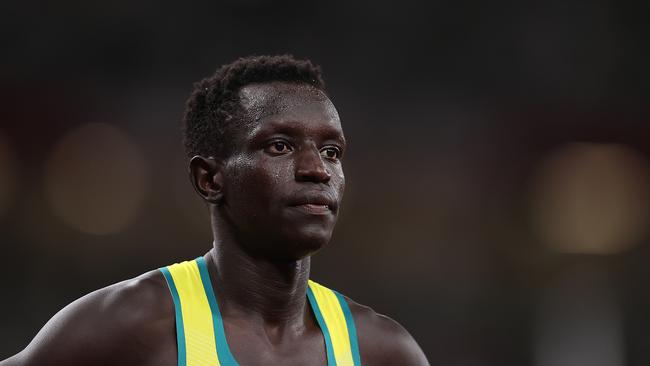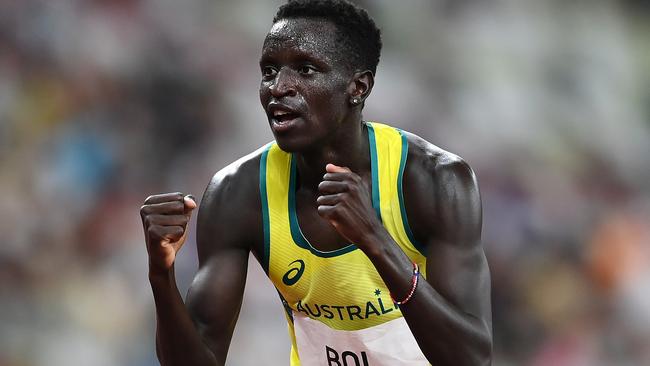Peter Bol drug test: Legal team says positive result down to interpretation of data
Peter Bol’s lawyer, Paul Greene has says his client’s positive sample could simply come down to interpretation of data and that there are examples of such instances being overturned.

Comm Games
Don't miss out on the headlines from Comm Games. Followed categories will be added to My News.
The American lawyer representing Peter Bol has questioned the interpretation of the laboratory data which has the Australian 800m champion fighting for his career.
Paul Greene, the founder of Global Sports Advocates who has represented athletes from all around the world, says it was a margin call for Bol to have been issued with a EPO positive test.
“EPO naturally occurs in every one of us so it’s not like synthetic EPO has a different chemical make-up than regular EPO,” Greene said.
“It is a density/gel test that seeks to measure the density of one versus another but not everyone’s density EPO is the same so there is not a clear straightforward test in every case.
“So sometimes you are right on the edge and it would appear from the initial report (with Bol) that they had a single band and that would mean it was a very very close call as to whether they were going to report this.”

Greene said there had been cases where having a single band result – there are up to five bands which indicate the level of strength – is not regarded as a clear test.
Bol has asked for the B-sample from his positive test on October 11 be re-tested and analysed in a different way with the hope it provides a negative result.
“Most of the time EPO is detected through a blood test,” Greene explained. “There is a urine EPO test and it has been around a long time but there have been cases where the B has not confirmed the A with the urine EPO test.
“There are cases out there that exist where that has happened.”
With an athlete’s urine test they’re required to relieve themselves into a beaker and then pour it into two vials, labelled A and B. They are both then sealed and frozen with the A test then tested in the laboratory.
Greene said there are a number of high-profile cases over the past decade where experts had found athletes were questionably convicted in EPO cases including Irish sprinter Steven Colvert and Norway’s walker Erik Tysse.
“It comes down to interpretation of lab data,” Greene said. “One scientist can completely have a different view to the other.
“I have seen careers destroyed with these things and it is very very harsh, you lose your life, you lose your livelihood.”





